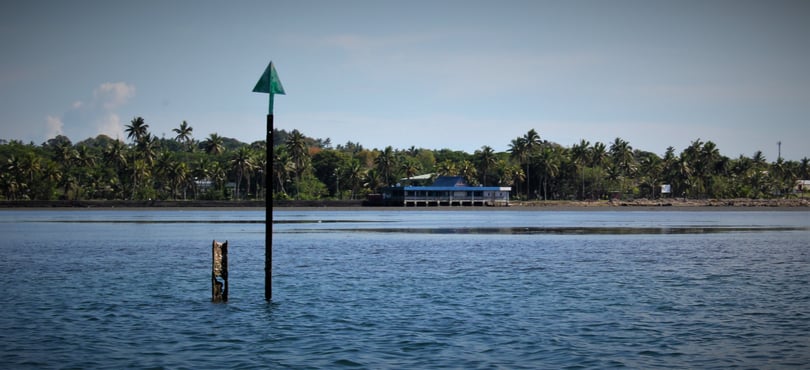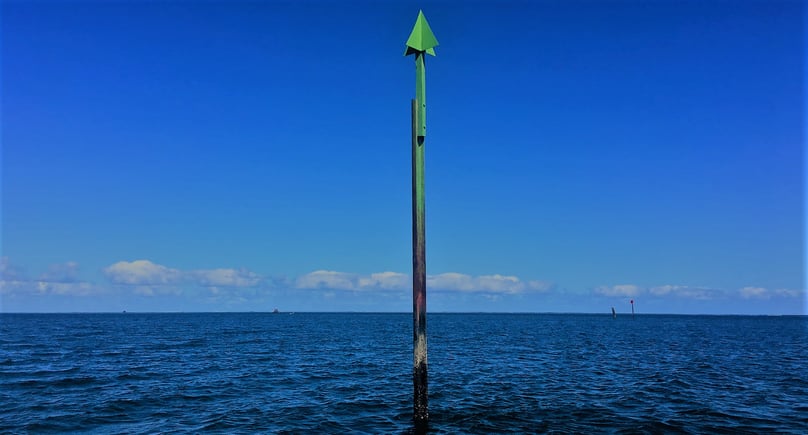Our valuable marine ecosystems are under threat for a variety of reasons that are well documented and include over-exploitation, pollution and climate change. It is also becoming increasingly understood that the survival of our own species is dependent on healthy ecosystems.
Marine conservation initiatives champion the conservation of marine ecosystems that support human well being. However, this is often against a backdrop of complex political, economic, social and governance regimes. Often the advocated solution for managing marine ecosystems will appear to be in direct conflict with existing user rights and commercial interests. The existing rights are not just commercial interests, but in Fiji and the Pacific also involve traditional rights holders, subsistence and artisanal fishers.
In a recent thought provoking and well timed academic article entitled An appeal for a code of conduct for marine conservation N.J. Bennett et al Marine Policy 81 (2017) 411-418, an impressive group comprising 25 academics and marine conservationists, make an appeal “for the development of a comprehensive and broadly accepted code of conduct to facilitate marine conservation processes and actions that are fair, just and accountable, while supporting the achievement of ecological effectiveness.”
In this bulletin we briefly consider how such a code may assist in Fiji’s legal and governance context, and how it could be implemented.

The authors acknowledge that decision-making processes, and decision-making ultimately rest within the legal autonomy of nation states. The proposed code of conduct would apply to marine conservationists who may, in their work relating to marine conservation, promote, encourage or provide technical assistance towards a final decision that could affect pre-existing rights in the marine eco-systems that are the target of greater protection.
A good example that the authors cite relates to the promotion of marine protected areas (MPA). MPAs typically remove or drastically reduce the right to fish within the area of the MPA. Therefore, any MPA is likely to affect, alter or remove pre-existing rights to fish, and these rights may include commercial interests as well as traditional fishing rights.
Fiji is a common law jurisdiction and in Fiji’s legal and governance context the final decision relating to the creation of MPAs is delegated to the Ministry for Fisheries. Fiji’s administrative/common law system means that any final decision that could adversely affect or remove existing rights must follow from a fair decision-making process that provides an opportunity for those who will be adversely affected to be consulted and heard as part of a fair process. We addressed this issue in our earlier legal bulletin entitled Marine Protected Areas and decision-making - an administrative law perspective.
A focus of the article relates to how marine conservationists should conduct themselves when working with national governments and communities to promote a particular decision outcome relating to marine ecosystems, and the article includes draft objectives and recommendations towards a code of conduct for marine conservationists. This code of conduct focuses on ensuring that all stakeholders are heard in the decision making process, and the stakeholders include: local communities, indigenous peoples, traditional users and marginalised populations as well as following due process and respecting the right of self-determination of sovereign nations and autonomous groups.
The authors emphasise that the need for a code of conduct for marine conservationists is not just to correct past mistakes where participatory processes were not followed, but to reach a minimum ethical standard. To achieve this minimum standard they argue that a code of conduct similar to codes of conduct followed by other professionals like doctors and lawyers is necessary.
As lawyers interested in promoting good decision making processes, that support Fiji’s common law/administrative system we see much that is commendable in the proposed code of conduct, particularly in relation to the MPA decision-making processes. By setting out who should be consulted the article greatly assists in promoting good decision making processes. We agree that the adoption of a code of conduct aimed at ensuring all rights holders are included in the decision-making process, would, if adapted to the Fiji legal context, minimise the risk of a challenge to any final decision. Of course that doesn’t guarantee that the final decision will be acceptable to all. However, the point is that if a fair process that accords with the principles of natural justice is adopted then it will drastically reduce the chances of a successful legal challenge to the final decision.
Another potential benefit of a code of conduct would be to coordinate efforts and approaches with marine conservation practitioners who would provide a consistent message and support to national governments that are often under-resourced to build robust, and participatory decision making processes.
Of course, the benefits that the authors of the article see in the code of conduct for marine conservationists are broader than those we have considered from a legal and governance point of view. This wider focus recognises that marine conservationists are part of a multi-disciplinary approach and encouraging participatory decision making processes is more than just creating legally robust decisions. The authors argue that the code of conduct is about reaching a standard of conduct that is “fair, just and accountable”. A further important point of focus for the authors is encouraging a move away from arbitrary initiatives that encourage a percentage coverage of marine areas for MPAs - for example, 30% by 2020 as they point out a rapid increase risks promoting actions that are “socially unjust or inappropriate”. The idea of encouraging good decision-making processes is that through proper consultation each country can determine what is appropriate and science based for that particular context.
While we not able to comment or address these wider perceived issues of accountability (or lack of accountability) within marine conservationists, we do see some significant hurdles to overcome before a code of conduct could be adopted. The authors themselves recognise challenges that include whether the code could just be treated as a checklist of minimum requirements to meet. But to our mind, more challenging issues relate to how the code would be adopted and who would oversee it and ensure compliance with it.
At this point, and before we even get to the implementation challenges of the code, it seems to us that there is a need to take a step back because by its nature it is hard to define who “marine conservationists” are. As already discussed the solutions to competing demands on natural resources rely on processes that require a multidisciplinary approach and involve scientists, social scientists, economists and lawyers. Whether such a diverse group could be herded together, as the authors contemplate to take one “oath” to abide by a code of conduct is likely to be a fundamental challenge.
Further, it is contemplated that the code of conduct should “guide the action of individual conservation practitioners, organizations or governments” and in some way hold them accountable. The authors posit the idea of “sanctions for transgressions or lack of effort may be needed - e.g., published rebukes, prerequisite corrective actions for future funding disbursements, etc. To hold the conservation community accountable, institutions and tangible processes may need to be set up - including methods for monitoring and evaluation, financing and capacity for auditing, an independent body to oversee the process and mechanisms to communicate shortcomings and ensure improvements are made.”
The risk we see with going too far down this road is that another level of bureaucracy may be created that may require significant resources. While we see a benefit in the code of conduct to assist with a consistent message for good/participatory decision making processes, we would support a lighter regulatory approach to the code’s implementation that would call on voluntary subscription to the code, based around calling for or supporting existing national decision making processes and ensuring that they are participatory of all pre-existing rights holders. This would echo the approach taken by the FAO Code for Responsible Fishing which sets out fundamental principles for responsible fisheries managers, but doesn’t contemplate additional bureaucracy that would be difficult to enforce.
To get to this point, and to avoid a code looking too inflexible and adding to the perception that aid efforts always look like a “one size fits all/best international practice” solution, we ascribe to and support ensuring that those specific legal, governance and decision-making contexts are fully understood in every jurisdiction in which marine conservationists work, along with the transparent publication of both successes and failures of efforts to support decision-making.
To assist here, we would support the proposal to make the code of conduct part of academic short courses tailored to specific jurisdictions with the aim of promoting participatory approaches, within those specific contexts, along with building knowledge of the legal and governance context in the jurisdiction. This way the short course could set out the pre-existing rights in each jurisdiction and how they may be adversely affected.
In conclusion, there is much to support in relation to the development of a code of conduct for marine practitioners. While academics in this area continue to find the best way to assist with good decision-making based on participatory methods - the principles in the article are an excellent resource that sets out who must be listened to in that process.
We recommend anyone interested in promoting good decision making in relation to natural and marine resources to read this open access article.
Please note:
This legal bulletin is provided for general information purposes only and it is not, and should not be relied on as, legal advice.




